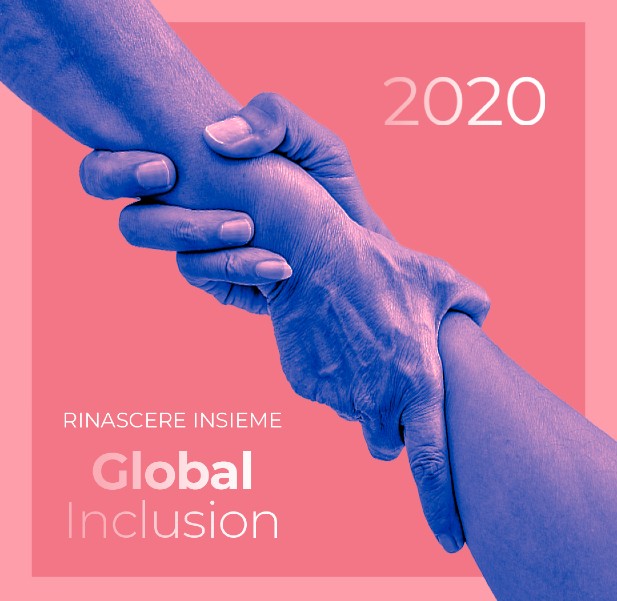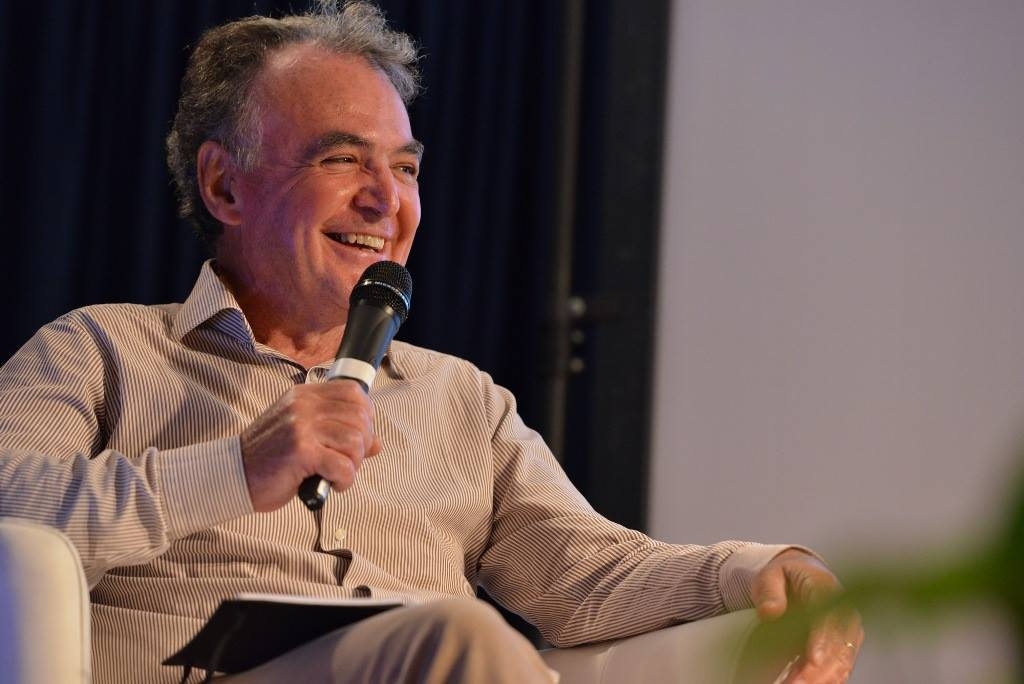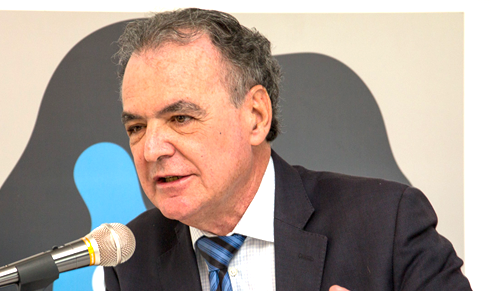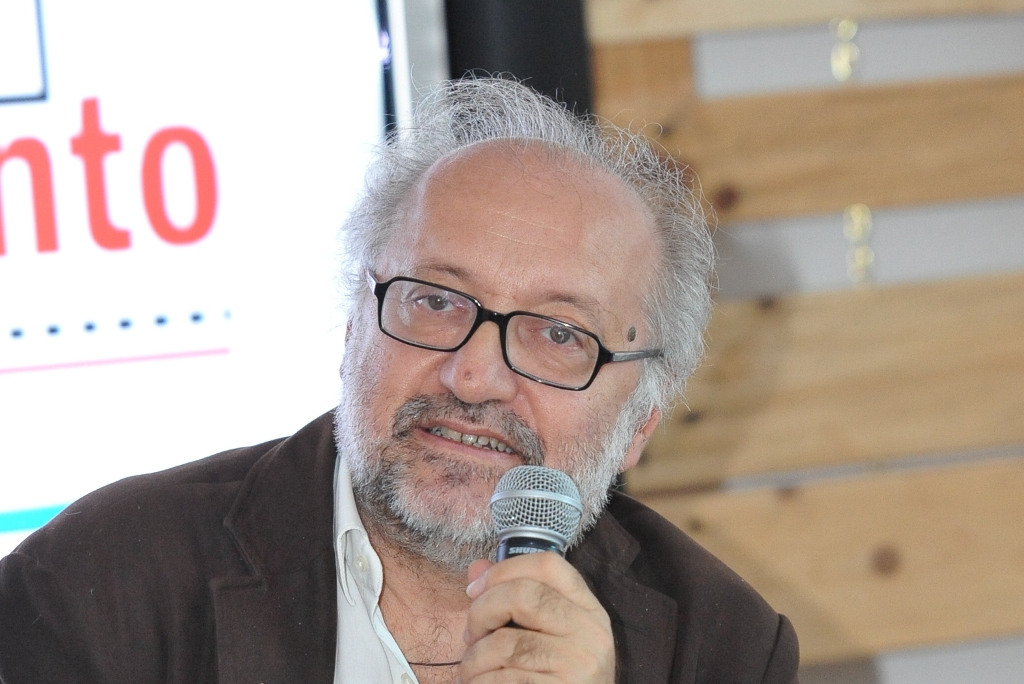Why is it necessary to reach a concept of global inclusion in 2020? Where’s the value and what results are expected?
I think the pandemic crisis we’ve experienced in recent months has highlighted the appropriateness, or rather the need, for a radical principle of social justice. If we look at the crisis not with feel-good parameters (“everything will be fine” or “we’ll carry on as before”) or as a mere digression that will not question the values that have guided the world order up until today, it seems clear that the principle of inclusion must be global and not referred to just one country or to one or more social categories. We must necessarily exit this crisis “together,” or rather by questioning some cornerstones of our economic and social system. Environmental and social sustainability as well as respect for people's rights and dignity must be the pillars upon which to construct this process of global inclusion. If we don't, there is an ever greater risk of conflict between different generations, social classes, ethnic groups and countries. We cannot contemplate surviving as the human race on a sick planet tainted by unacceptable inequalities.
At the 2020 edition, the Statute for Inclusive Rebirth has been presented and endorsed by organisations and individuals. What cornerstones is it based on?
The key principle is that we can only exit from the crisis – we all suddenly found ourselves disoriented and lost – together. This requires virtuous cooperation between people, companies and nations. In recent months I’ve often used a metaphor borrowed from Erri De Luca: to find our way again, we must be like salmon which, to generate new life, decide to embark on a counter-intuitive journey, swimming upstream to return to the spring. Only if we rediscover the fundamental values of living together, if we turn enterprises and work into positive tools to create value, will we be able to rise from the ashes.
Secondly, it seems clear how the use of new digital technologies is a great opportunity which, however, is generating new inequalities and new exclusions. The way forward involves keeping the levers of digital innovation and social innovation together.
A third principle concerns the fact that the pandemic crisis is redesigning work, training and professional relationships. This does not always occur in a linear fashion. In education, some categories of children and teenagers have been cut off from remote learning due to a lack of digital tools and skills; logistics workers or those providing services to people – who certainly can’t carry out their work remotely – have often found themselves in a situation where there is little respect for their rights and their contracts. So while its true that smart working represents an important revolution, it does not represent an opportunity for everyone.
Fourth principle: businesses can act as torchbearers for the creation of new value. Businesses that are inspired by environmental and social sustainability, that have chosen to establish roots in their territorial communities, are those that seem better equipped to remain competitive and to successfully exit the crisis.
The ecosystem you have envisaged for global inclusion involves the joint action of civil society, universities, companies and the voluntary sector. But what diversified roles must and can these actors play to create a harmonious symphony of inclusion?
There are certainly specific and diverse roles. I come from the voluntary sector and that’s my background, but I envisage a future of continuous contamination between the four players that represent the ecosystem of inclusion. Contamination is essential in this process, as it allows values and skills to move from one world to another. Positive experiences are already occurring. For example, the experience of Roche, where a number of employees were involved in responding to the freephone number set up by the Ministry of Health to provide information to citizens during the lockdown; TIM itself, which made equipment and technologies available to hospitals and schools. So in the future, companies will be able to share their expertise and technologies with the voluntary sector.
The voluntary sector must also go beyond the logic of subordination to public institutions, not putting itself forward solely as a service provider. Instead it must partner with public players in designing new solutions to reach a community and inclusive welfare. The most fragile and weakest are, in fact, those who paid the highest price in the crisis.
The relationship between the voluntary sector and universities must also be fostered. In the last few months I created a legal monitoring unit for the voluntary sector, “Terzjus,” a tool to monitor, oversee and support the implementation of reform in the voluntary sector, taking advantage of the expertise of a highly authoritative scientific committee.
What are the main inclusion trends of this current decade?
I’ll answer that by mentioning some interesting cases.
The event was attended by the guest Vincenzo Linarello, chairman of the GOEL consortium, who managed to create a network of agricultural cooperative enterprises in Locri to offer the opportunity to promote the products of that region and to create work for many young people. One of the biggest successes was achieved with the brand “Cangiari” which produces handwoven fabrics following the ancient tradition of Calabrian weaving - of Greek and Byzantine origin – which, combined with research and innovation, results in unique products with exquisite sartorial finishes fit for high fashion.
There’s also the experience of Jobmetoo by Daniele Regolo who, taking his personal situation as a starting point, has created a business of inclusion for people with hearing disabilities, producing a service that brings together job supply and demand.
But the biggest problem for Italy is the inclusion of young people and women. It is no coincidence that the former governor of the ECB, Mario Draghi, focused on young people in his recent talk at the Meeting in Rimini: more investment in education and jobs for young people, this is how to revive the country.
We need to fall in love with the idea of the future if we want to overcome fear and find the impetus to start growing again.
The committee you chair, the “Global Inclusion Committee - Art. 3,” mentions Art. 3 of the Constitution of the Italian Republic in its name. 72 years after it came into force, what still needs to be completed to achieve the ideal of equality and equal opportunities on which the article is based?
When it was suggested that I become chairman of this committee, I was struck by one thing. The fact that it was understood that article 3 is made up of two parts: the first, which is the most known, establishes that “All citizens shall have equal social dignity and shall be equal before the law, without distinction of gender, race, language, religion, political opinion, personal and social conditions.”; and then the second (less quoted) part highlights the “duty” of the Republic (and therefore not only of institutions but of every player in the ecosystem) to “remove those obstacles of an economic or social nature which constrain the freedom and equality of citizens, thereby impeding the full development of the human person and the effective participation of all workers in the political, economic and social organisation of the country.”
Institutions, people, academia, the voluntary sector, the world of work, all working together. It's no coincidence that the word “workers” is used, as we can imagine that companies must become the advocates of this change and take on this responsibility as a duty. The Global Inclusion Committee has infused its activities with this “task” and this year's event, focused on the Statute of an “Inclusive Rebirth,” aims to promote and spread not only the culture but also the practice of inclusion in companies and workplaces.




